Not actually for homework anymore I lied! This used to be a linguistics research project but now I’m just unironically on tumblr I guess
Don't wanna be here? Send us removal request.
Text
i love mechanic pencils ... the elegance of a pen and the kindness of a pencil
45K notes
·
View notes
Text

May I introduce you to my favourite Calvin and Hobbes strip which only got funnier when I got hearing aids.
33K notes
·
View notes
Text
spinning silver is funny as fuck because the staryk king and miryem arranged their own arranged marriage. like they're both complaining and furious but they came up with that idea themselves
212 notes
·
View notes
Text
I love the hagiographies that are like "St. Christopher was 12 feet tall and frost giants helped him build an abbey out of the bones of a giant pig, which were gold"
And then you Google the abbey and it's clearly just French and made of slate rock or whatever.
11K notes
·
View notes
Text
THE RIME OF THE ANCIENT MARINER 2 ANNOUNCED
THE ALBATROSS IS BACK………. AND HES FUCKING PISSED
25K notes
·
View notes
Text























New Secret Knots comic: "Cryptid".
55K notes
·
View notes
Text
I don’t understand how seeing any kind of bird could be bad luck because you get to see a bird
2K notes
·
View notes
Text
we are no longer calling them comic books.
this is disrespectful and implies that the writers have the ability to be funny. it also misrepresents the relationship fans have with them, as we divine individual panels as scripture to support our doctrinal understandings of the fictional characters therein.
henceforth we shall call them illuminated manuscripts and refer to them thusly:
in the illuminated manuscript Batman vol. 1 (1940) #163 (May 1964), it is revealed unto us that Alfred Pennyworth the Butler imagine'd an adult Bette Kane returning to Gotham to succeed her elder cousin Kathy Kane as the second Batwoman, and verily it was Good. in this way he is as the Ice King, Simon Petrikov, and his relationship with Bette like that of Fionna and Cake: idealized fanfiction of people that he actually knows
272 notes
·
View notes
Text
No bcus the implications of the Saja Boys are so funny like??? Jinu is the only one we've seen has a confirmed music background so did he have to research, train, style, and manage the group by himself???? Did he also have to come up with the concepts and the marketing or is there like a demon thats rlly good at photoshop? Or if its all Jinu that means he had to teach himself fucking adobe after effects and how to use tiktok. Also how did he even research how to make a boy group was he in the trenches of BTS comment sections??? God the more I think about the Saja Boys the funnier it gets
33K notes
·
View notes
Text

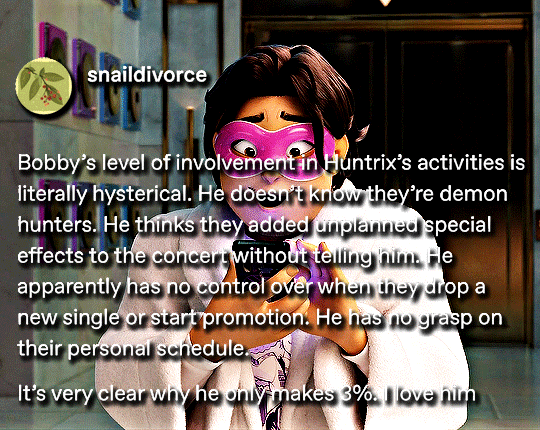


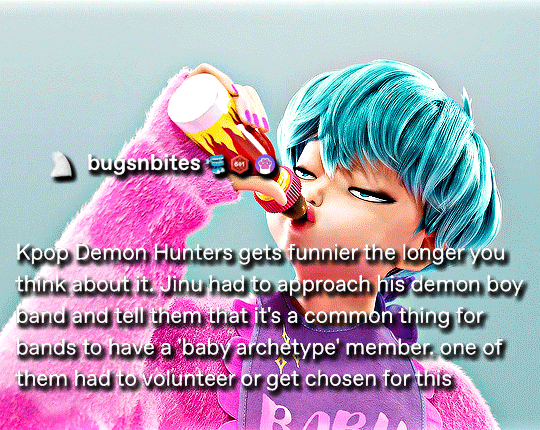
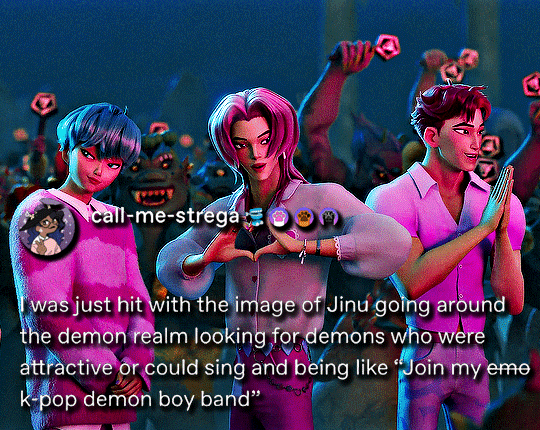
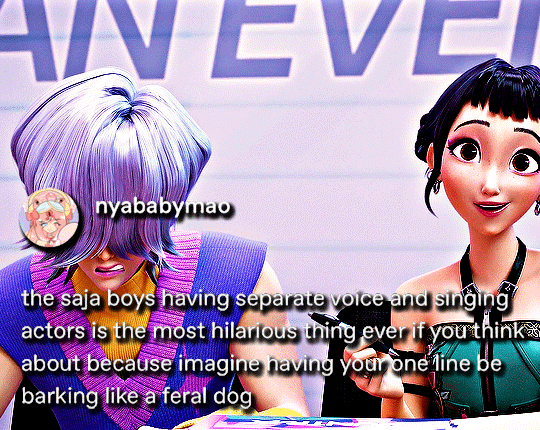
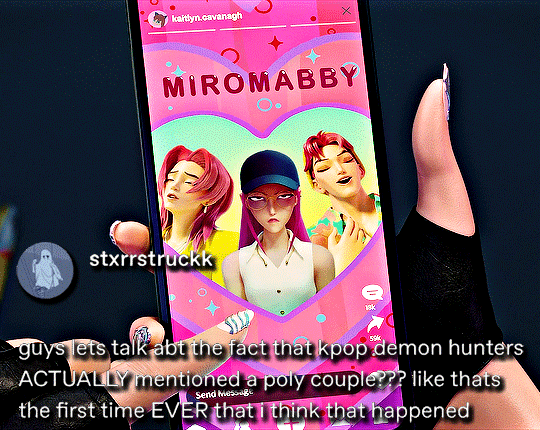
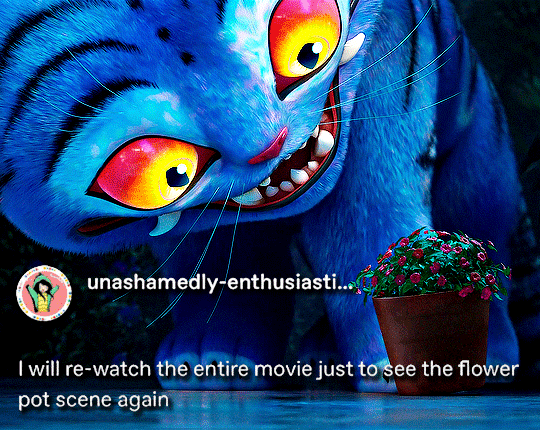
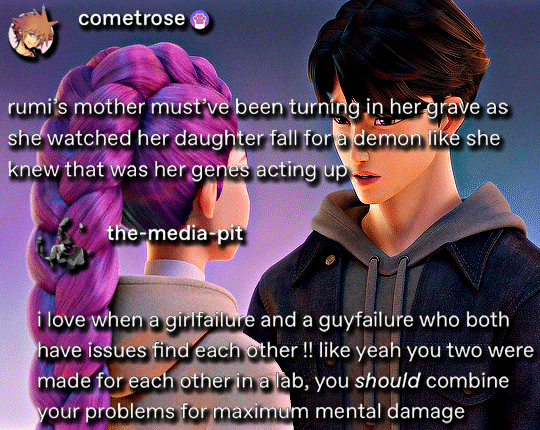
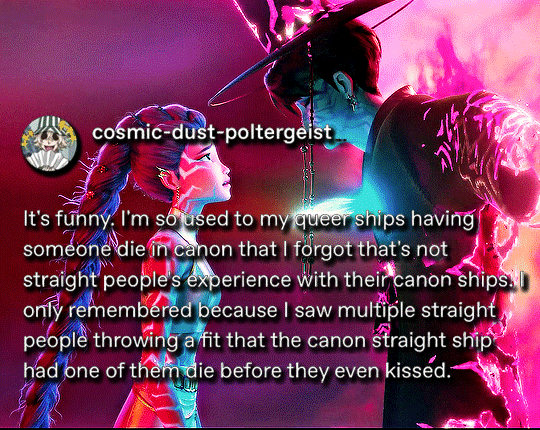

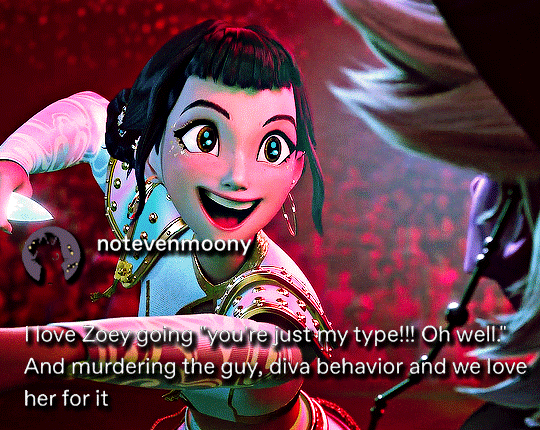
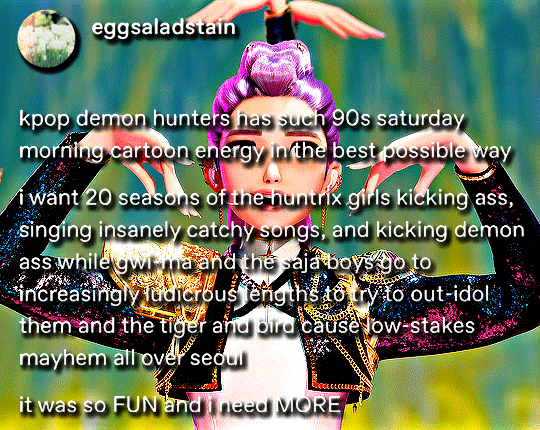

KPOP DEMON HUNTERS (2025) + TUMBLR REACTIONS
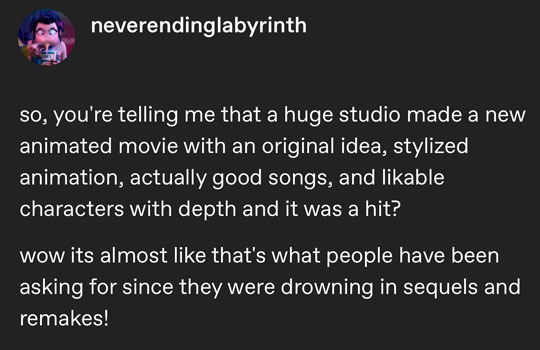
51K notes
·
View notes
Text

has anyone asked this
103K notes
·
View notes
Text
they just don't make characters like jon archivist sims. he spends an entire season having a forty episode long delusional breakdown and that's only maybe the third or fourth worst period of time in his life. he gets intervened on twice. he gets kidnapped thrice. during one of those kidnappings he spends a month tied to a chair getting forcibly moisturized by a plastic ringmistress mannequin and no one notices. he fully dies for six months but gets up again when a friendly grim reaper gives his unbreathing body a pep talk. he spends several episodes at the start of the final season so depressed that it's unclear if he even moves for multiple days in a row. the basis for his magic powers is that he is so traumatized that he begins to need continuous further trauma in order to live, which gives him the ability to explode people with his mind. he spends about fifty seconds at the top of an episode self-harming directly into a tape recorder, which is not even the most fucked up thing to happen to him that episode. he finally cried on audio for the first time in the penultimate ep and the only reaction I saw for several days after was wildly enthusiastic cheering. he's missing two ribs and he's at least 80% scar tissue by volume and the only canon information we have about his appearance is that he looks terrible at all times.
11K notes
·
View notes
Text
I’m obsessed with the bit in the Hobbit films where Thranduil tells Legolas to go find Aragorn— because if you care enough to dive through the layers of obscure knowledge it takes to understand the timeline, then you’re also the exact kind of LOTR Film Nerd who knows why the moment actually doesn’t make sense.
Tiny brain: “oh cool Legolas will find Aragorn”
Small brain: “ummm actually in the first Hobbit film it says that The Hobbit take place 60 years before Bilbo’s 111th birthday in lord of the rings? So wouldn’t Aragorn be a baby?”
Medium brain: “ummm actually if you watched the extended cut of The Two Towers, it’s made clear that Aragorn is a descendant of Numenor who has an abnormally long lifespan. He is 87 at the time of Lord of the Rings; 60 years earlier, he was 27, a very reasonable age for him to have made a name for himself as a ranger.”
Large Brain: “Ummmm actually in the book it’s confirmed that there’s a twenty-year gap between Bilbo’s 111th birthday party disappearance to Frodo leaving the Shire with the Ring. The Hobbit quest happened 60 years before Bilbo’s famous birthday party. 87-60-20=7 years old. Aragorn would be a lil guy. He would not yet be Strider, the timeline makes no sense.”
Giant brain: “ummm actually the screenwriters have confirmed that the 20 year gap is not canon in the film’s universe. First, it’s really not portrayed as a 20-year-gap in the films— it’s written and shot as if it were a couple months. The screenwriters were also aware of the implications of removing it. For example, in a behind the scenes commentary they discussed how their portrayal of Frodo is much younger than the version in the book —because they removed the 20-year gap. Film!Frodo is an innocent youth going out on his own for the first time, in contrast to the book’s more mature adult— and that deeply affects his characterization throughout the trilogy.
We can consider Legolas’s journey to meet Strider an official canon confirmation that the 20-year gap did not happen in the film’s universe. So the timeline makes sense!”
Galaxy brain: “okay, but even if the timeline works with the LOTR films, this new backstory doesn’t work with the LOTR films’ portrayal of Legolas’s character.
In the Hobbit films, it’s retconned that Legolas went to find Aragorn because he was so overwhelmed by all the death he witnessed in the Battle of the Five Armies. It’s retconned that he has a mother who died when he was young, and a grief-stricken father, and that he’s constantly Angsting over both. it’s also retconned that Legolas was in unrequited love with a grieving woman who loved a dwarf tragically killed in battle. Legolas feels he can no longer stay in the Woodland Realm because of all this loss, which is why he decides to find a new purpose with Aragorn.
But in the Lord of the Rings films, part of Legolas’s character arc is that he’s witnessing death and mortality up close *for the first time in his immortal life.* He’s a fae magical immortal who’s not used to death affecting him personally. This character arc is unique to the films. (it is not reallllllly in the books, and doesn’t jive with the way Tolkien writes elves in general— but it is the way the films chose to rewrite Legolas’s storyline. )
film!Legolas reacts to Gandalf’s death with bewilderment, acting lost, as if he’s experiencing emotions that are entirely new to him. This acting decision is discussed explicitly in behind the scenes materials. Legolas has rarely encountered this kind of death, not in a way so close to him personally, so it’s hard for him to even comprehend. Legolas’s unfamiliarity with mortal death continues through Boromir’s death and into the Two Towers, where he gradually grows more worried over the lives of Aragorn/ the people of Rohan. He reacts with bewildered anger when told to leave Aragorn for dead, and then lashes out at Aragorn when he thinks that everyone at Helm’s deep will die (only to receive the response: “then I shall die as one of them.”)
This character arc ends in Return of the King, with a famous bit of dialogue that does not appear in the books. Gimli says he “never thought he’d die side by side with an elf,” and Legolas cheerfully responds “what about side by side with a friend?” Mortal death goes from something Legolas finds distant/unfamiliar, to something he accepts as a natural part of living among mortals.
This is similar to the changes the films make to Arwen’s character, vs the original book. In the films, both of the “young” elves have arcs about encountering death up close, and yet continuing to love the mortal world. The films contrast them with the “older” wearier elves like Elrond and Galadriel. Obviously this theme is more of a focal point in Arwen’s plotline, but it’s also relevant to Legolas. (And! In early drafts of the Two Towers, Arwen joined Aragorn at Helm’s Deep— I have a theory that the scenes where Legolas worries over Aragorn’s death were originally written for Arwen.)
So!
if you care enough about the Lord of the Rings films to understand that “there is no twenty year gap,” that Frodo is a young ingenue instead of middle-aged adult, that the films have their own storyline/characters/timeline separate from the books, and that therefore the timeline of Legolas meeting Strider can make sense …
….then you also probably care that Legolas had a specific character in the LoTR films, and this new backstory contradicts it.
Giving Legolas a new core motivation where “he’s overwhelmed by angst/grief from encountering too much death” undercuts his entire characterization in LOTR, which was meant to be about encountering mortal death up close for the first time. It also cheapens really impactful moments from LOTR— like Orlando Bloom’s performance after the death of Gandalf, where he really captures the idea that this fae immortal is struggling to comprehend the ordinary human emotion of grief.
And that’s why so many critics get that moment in The Hobbit wrong XD. People always try to critique it from a timeline/continuity perspective, when in reality, the timeline continuity makes perfect sense!!! The actual problem is the way it poorly attempts to retcon Legolas’s entire characterization. And IMHO that’s a much more serious flaw than a continuity error. It’s not “making a math mistake,” it’s undercutting the meaning of Legolas’s story in LOTR.
Super Mega Galaxy Brain: “nothing in the hobbit films is canon except the pieces I like”
3K notes
·
View notes
Text
"kind of a shitty wizard" is such a character defining moment. the bullying of jenkins is the bedrock of tres horny boys. if you don't love taz at "and that word is my fucking name jenkins" you don't deserve it at "phantasmal and resplendent" okay.
2K notes
·
View notes
Text
Spent tonight at a local short film festival. One of the shorts was made by two 12 year olds in their backyard and it was the best short of the entire night
60K notes
·
View notes
Note
hey do you have any feelings about the obscure early modern playwright sir john suckling?
hey this feels like such a trap and it's driving me crazy because there are precisely TWO people in the world who could send me such an ask but I'm not sure which one this is.
You know what? I have SO many Sir John Suckling feelings but mostly I'm his number one apologist. Does The Goblins make sense? No. Is it fun as hell? Yes! Does it secretly fill me with dramaturgical joy when I'm the only person in the rehearsal room who has any idea what is going on in a scene? Also yes! Don't @ me, Suckling is better than Jonson if only for the fact that he's infinitely more meme-able and less pretentious.
I like it when actors suffer and audiences leave the theatre saying "what the hell" because I am a cruel and capricious dramaturg
4 notes
·
View notes
Text
some beetles cant fly but they dont mind. they are more armored than agile and in certain situations this is desirable
88K notes
·
View notes